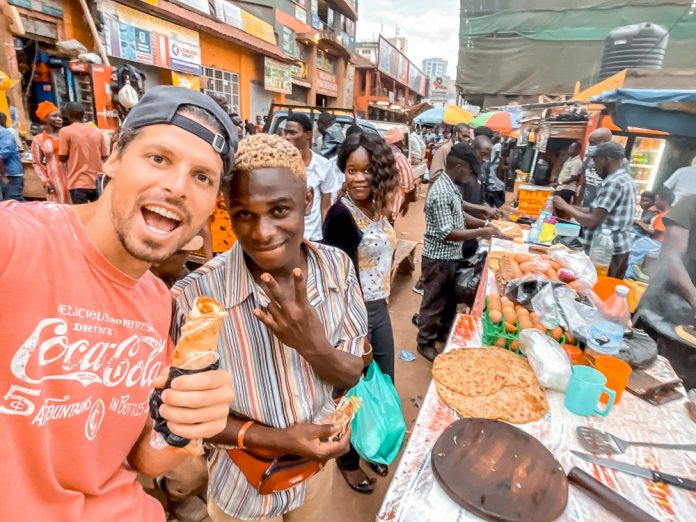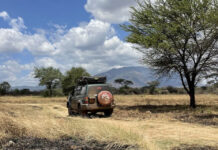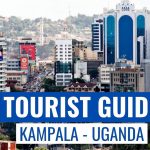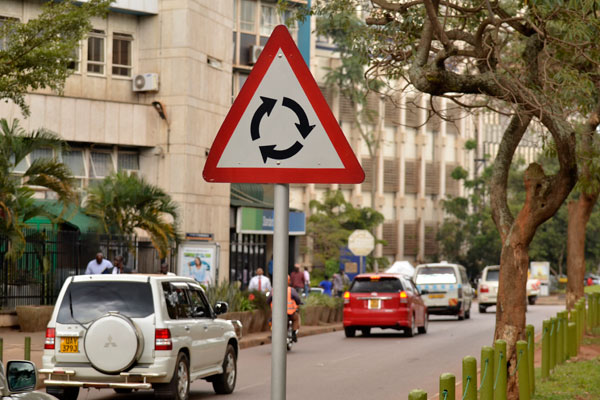Is Uganda safe for visitors? Is it safe for a westerner? I look at my analytical program for my website and see the same question…”Is Uganda safe?”Is a visitor from the West, America, Canada, UK, Europe, Asia safe in Uganda.
Uganda Travel latest Safety and Security Information.
Each day I receive emails asking me the same question. Is Uganda safe for visitors? Is it safe for a westerner?
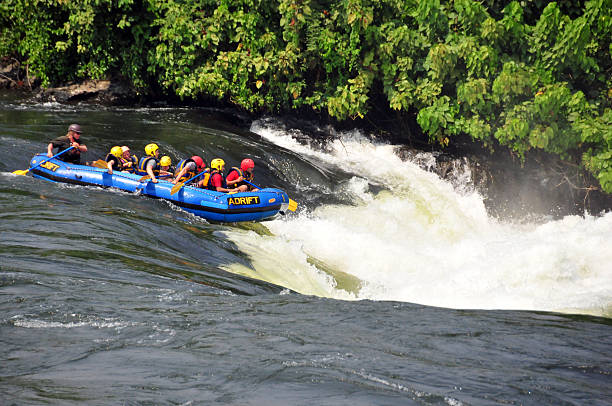 Is Uganda safe for an American visitor? I look at my analytical program for my website and see the same question…”Is Uganda safe?”
Is Uganda safe for an American visitor? I look at my analytical program for my website and see the same question…”Is Uganda safe?”
Uganda is safe and secure. There is no war going on inside of Uganda. There has been peace in the north for over 11 1/2 years in regards to Uganda the Pearl of Africa the LRA Joseph Kony rebels. There is no rebel activity inside of Uganda since June 2009.
So, how safe is Uganda?
Uganda has been an acceptably safe travel destination ever since Museveni took power in 1986, and the most significant threat to life and limb comes not from banditry or political instability, but rather from the malaria parasite and car or boat accidents.
Nevertheless, as the fatal attack by Rwandan rebels on tourists staying at Bwindi in 1999 so brutally demonstrated, Uganda’s location at the heart of a perennially unstable part of Africa does mean that its border areas, in particular, are bound to suffer intermittent security problems.
The only part of Uganda that has suffered from genuine internal instability lies northwest of Murchison Falls, an area that traditionally sees few tourists and has few compelling attractions in the first place.
For most of the last 20 years, the north has been plagued by the Lord’s Resistance Army.
In addition to the direct political and social consequences attached to this ongoing upheaval, banditry was rife, and several attacks on buses and other vehicles took place north of the Nile Bridge at Karuma Falls.
Despite the fact that a peace deal has never been signed, the rebellion is considered to be over and northern Uganda safe for travel.
This is reflected by expanded coverage of the area north of the Nile in this site.
Murchison Falls is also considered safe, security advisory notices having been lifted by the British high commission and the US embassy in Uganda.
The northeast, however, remains rather dodgy, because of banditry related to Karamojong cattle rustlers.
The problems afflicting the DRC and Rwanda have also frequently spilled over into neighboring parts of Uganda.
The most sustained instance of this overflow was the emergence of the Allied Democratic Forces (ADF) in the mid-1990s.
This small and somewhat mysterious ‘rebel’ army – thought to consist solely of Congolese thugs – was responsible for several brutal attacks in the Rwenzori border area, including the massacre of 60 students at the Kichwamba Technical School near Fort Portal in June 1998.
The activities of the ADF forced the closure of the Rwenzori national park and Semliki national park in 1997 before Ugandan government troops managed to drive the ADF back into the DRC, and there have been no subsequent incidents of concern.
Semliki National Park reopened in 1999, as did the Rwenzoris in July 2002, and it can be assumed that they would close again at the first hint of trouble.
In August 1998, four travelers were abducted in the DRC after crossing there from Uganda – one elderly woman was released but the other three are missing, presumed dead – an incident that at the time seemed to have little bearing on security in Uganda.
Six months later, tragedy struck closer to home, when the park headquarters at Bwindi was attacked by an army of exiled Rwandan rebels, killing two rangers and eight tourists.
If, as seems probable, the aim of the attack was to destabilize Uganda’s tourist industry, then it could not have been better calculated, given that the mountain gorillas at Bwindi impenetrable forest had done more than anything to help Uganda overcome a negative international image generated by the barbarities of the Amin and Obote regimes.
Prior to March 1999, Bwindi forest was considered to be safe for gorilla safaris by almost everybody involved in Uganda.
The attack on the unprotected park headquarters came as a complete shock, but in hindsight, it could so easily have been averted by a greater military presence.
The lesson has been learned and security in Bwindi is high (soldiers accompany visitors on all walks) as indeed it is at all national park tourism sites close to Uganda’s western border.
Eleven years later, there seems little cause for serious concern regarding security along with Uganda’s established tourist circuits. Indeed, I would regard this country to be safer overall than Kenya or South Africa, both of which suffer from very high rates of armed crime.
Equally, I’m a travel writer, not a political sage, and as such, I’d regard it to be irresponsible to state categorically that the Bwindi incident was a one-off event, or that nothing of the sort could ever happen again.
The decision to visit Uganda, and the responsibility, rests on the individual traveler.
Assuming that you do, I would recommend you keep your ear to the ground, read the local newspaper, and avoid visiting known trouble spots – fortunately, the authorities are unlikely to allow tourists to visit reserves and national parks where there is a security problem.
What are the most dangerous situations for visitors to Uganda?
Uganda has been home to some of the more gruesome atrocities in modern African history since its independence in 1962, particularly under the heinous dictator Idi Amin, but in the years since 1987 things have consistently improved.
Today, in 2022, the state is relatively stable after 39 years of stereotypically ‘strong man’ rule by Yoweri Museveni.
Kampala has changed into a major center of East African trade.
Travel north to Murchison Falls National Park and Ajai Game Reserve is perfectly safe. Note that overlanders from Tanzania and Kenya regularly make the trip routing through Jinja.
As in any urban area, Kampala can be dodgy. One is well-advised to remain in tourist areas, but sensibly garbed visitors not dangling the latest cameras, flashy jewelry or bulging bags are not likely to draw unwanted attention to themselves.
However, any Caucasians walking in the street stand out and are likely to be stared at openly, which may cause discomfort to those unaccustomed to traveling in Africa.
What little begging exists is some of the most polite and inoffensive to be found in African cities, nowhere worse than in the West.
Small children are sadly becoming a nuisance in some rural spots frequented by tourists doling out sweets and coins but nowhere near the swarming throng, one can attract in many cities around the world.
In the gorilla tracking region of the Bwindi Impenetrable Forest National Park near the border with the Democratic Republic of the Congo, there was one incident in the late 1990s in which bandits attacked a group of tourists and killed several people.
Since then, there have been no incidents and all groups now go out with armed guards (which was not the case before).
There is a visible security presence in the region, but this is a preventative measure rather than a response to anything specific.
Travelers should still avoid the North-Eastern areas as Karimijong attacks have occurred that involved tourists.
Gay and lesbian travelers should be cautious, as there have been reports of recent attacks against Ugandan homosexuals.
Uganda has draconian anti-gay laws: homosexuality is punishable by up to 14 years in prison and as of 2011 there are plans to introduce the death penalty for some homosexual activities.
BRIBERY AND BUREAUCRACY
For all you read about the subject, bribery is not the problem to travelers in Africa it is often made out to be.
The travelers who are most often asked for bribes are those with private transport, and even they only have a major problem at some borders and from traffic police in some countries (notably Rwanda and Kenya).
If you are traveling on public transport or as part of a tour, or even if you are on a self drive in Uganda, I don’t think that you need to give the question of bribery serious thought.
There is a tendency to portray African bureaucrats as difficult and inefficient in their dealings with tourists.
As a rule, this reputation says more about Western prejudices than it does about Uganda.
Sure, you come across the odd unhelpful official, but then such is the nature of the beast everywhere in the world.
The vast majority of officials in the African countries I’ve visited have been courteous and helpful in their dealings with tourists, often to a degree that is almost embarrassing.
In Uganda, I encountered nothing but friendliness from almost every government official I had dealings with, whether they were border officials, policemen, or national park staff.
This, I can assure you, is far more than most African visitors to Europe will experience from officialdom.
A factor in determining the response you receive from African officials will be your own attitude.
If you walk into every official encounter with an aggressive, paranoid approach, you are quite likely to kindle the feeling held by many Africans that Europeans are arrogant and off-hand in their dealings with other races.
Instead, try to be friendly and patient, and accept that the person to whom you are talking does not speak English as a first language and may thus have difficulty following everything you say.
Treat people with respect rather than disdain, and they’ll tend to treat you in the same way.
THEFT
Uganda is widely and rightly regarded as one of the most crime-free countries in Africa, certainly as far as visitors need be concerned.
Muggings are comparatively rare, even in Kampala, and I’ve never heard of the sort of con tricks that abound in places like Nairobi.
Even petty theft such as pickpocketing and bag snatching is relatively unusual, though it does happen from time to time.
Walking around large towns at night is also reputedly safe, though it would be tempting fate to wander alone along unlit streets.
On the basis that it is preferable to err on the side of caution, I’ve decided to repeat a few tips that apply to traveling anywhere in east and southern Africa:
- Most casual thieves operate in busy markets and bus stations. Keep a close watch on your possessions in such places, and avoid having valuables or large amounts of money lost in your daypack or pocket.
- Keep all your valuables and the bulk of your money in a hidden money belt.
Never show this money belt in public. Keep any spare cash you need elsewhere on your person;
I feel that a button-up pocket on the front of your shirt is the most secure place as money cannot be snatched from it without the thief coming into your view.
It is also advisable to keep a small amount of hard currency (ideal cash) hidden away in your luggage so that, should you lose your money belt, you have something to fall back on.
- Where the choice exists between carrying valuables on your person or leaving them in a locked room I would tend to favor the latter option (only one of the hundreds of thefts I’ve heard about in Africa happened from a locked hotel room, and that was in Nairobi where just about anything is possible).
Obviously, you should use your judgment on this and be sure the room is absolutely secure. A factor to be considered is that some travelers’ cheque companies will not refund cheques that were stolen from a room.
- Leave any jewelry of financial or sentimental value at home.
CARRYING MONEY AND VALUABLES
It is advisable to carry all your hard currency as well as your passport and other important documentation in a money belt. The ideal moneybelt for Africa is one that can be hidden beneath your clothing.
External moneybelts may be fashionable, but wearing one in Africa is as good as telling thieves that all your valuables are there for the taking.
Use a belt made of cotton or another natural fabric, bearing in mind that such fabrics tend to soak up a lot of sweat, so you will need to wrap plastic around everything inside.
The best insurance against complete disaster should you be robbed is to keep things well documented. If you carry a photocopy of the main page of your passport, you will be issued with a new one more promptly.
In addition, note down details of your bank, credit card (if you have one), travel insurance policy, and camera equipment (including serial numbers), as well as your travelers’ cheque numbers and a record of which ones you have cashed, and the international refund assistance telephone number and local agent.
If all this information fits on one piece of paper, you can keep photocopies on you and with a friend at home.
WOMEN TRAVELLERS
Women generally regard sub-equatorial Africa as one of the safest places in the world to travel alone. Uganda in particular poses few if any risks specific to female travelers.
It is reasonable to expect a fair bit of flirting and the odd direct proposition, especially if you mingle with Ugandans in bars, but a firm ‘no’ should be enough to defuse any potential situation.
And, to be fair to Ugandan men, you can expect the same sort of thing in any country, and for that matter from many male travelers. Ugandan women tend to dress conservatively.
It will not increase the amount of hassle you receive if you avoid wearing clothes that, however unfairly, may be perceived to be provocative, and it may even go some way to decreasing it.
More mundanely, tampons are not readily available in smaller towns, though you can easily locate them in Kampala, Entebbe, and Jinja, and in the game lodge and hotel gift shops.
When traveling in out-of-the-way places, carry enough tampons to see you through to the next time you’ll be in a large city, bearing in mind that traveling in the tropics can sometimes cause heavier or more regular periods than normal.
Sanitary pads are available in most towns of any size.
WHAT TO TAKE
Two simple rules to bear in mind when you decide what to take with you to Uganda – particularly if you expect to use public transport – are to bring with you everything that might not be readily available when you need it and to carry as little as possible.
Somewhat contradictory rules, you might think, and you’d be right – so the key is finding the right balance, something that probably depends on personal experience as much as anything.
Worth stressing is that most genuine necessities are surprisingly easy to get hold of in the main centers in Uganda and that most of the ingenious gadgets you can buy in camping shops are unlikely to amount to much more than dead weight on the road.
If it came to it, you could easily travel in Uganda with little more than a change of clothes, a few basic toiletries, and a medical kit.
CARRYING YOUR LUGGAGE
Visitors who are unlikely to be carrying their luggage for any significant distance will probably want to pack most of it in a conventional suitcase.
Make sure the case is tough and durable, and that it seals well so that the contents will survive bumpy drives to the game reserves.
A lock is a good idea, not only for flights, but for when you leave your case in a hotel room – theft from upmarket hotels is unusual in Uganda, but it can happen anywhere in the world,
and even a flimsy lock will act as a serious deterrent to casual finger-dipping.
A daypack will be useful on a Uganda safari, and you should be able to pack your luggage in such a manner that any breakable goods can be carried in the body of the vehicle, and on your lap when necessary – anything like an mp3 player or camera will suffer heavily from vibrations on rutted roads.
If you are likely to use public transport, then an internal frame backpack is the most practical way to carry your luggage.
Once again, ensure your pack is durable, that the seams and zips are properly sewn, and that it has several pockets.
If you intend to do a lot of hiking, you definitely want a backpack designed for this purpose.
On the other hand, if you’ll be staying at places where it might be a good idea to shake off the sometimes negative image attached to backpackers, then there would be obvious advantages in using a suitcase that converts into a backpack.
RED TAPE
Check well in advance that you have a valid passport and that it won’t expire within six months of the date on which you intend to leave Uganda. Should your passport be lost or stolen, it will generally be easier to get a replacement if you have a photocopy of the important pages.
If there is any possibility you’ll want to drive or hire a car in Uganda, bring a valid driving license.
Your domestic (home country) driving license will suffice for a period of up to three months.
If you intend to drive in Uganda for longer, you can either obtain a Ugandan license or (this is far cheaper and simpler) bring an international driving license with your domestic license.
Rather than carrying the originals, a photocopy will suffice. You may sometimes be asked at the border or international airport for an international health certificate showing you’ve had a yellow fever shot.
For security reasons, it’s advisable to detail all your important information on one sheet of paper, photocopy it, and distribute a few copies in your luggage, your money belt, and amongst relatives or friends at home.
The sort of things you want to include are your travelers’ cheque numbers and refund information, travel insurance policy details and 24-hour emergency contact number, passport number, details of relatives or friends to be contacted in an emergency, bank and credit card details, camera and lens serial numbers, etc.
VISAS
Nationals of most countries require a visa in order to enter Uganda. This can be bought in advance at any Ugandan embassy or high commission abroad, but usually, it’s simpler to buy the visa upon arrival, a straightforward procedure that takes a few minutes at Entebbe International Airport or any overland border.
Though inevitably some queuing is involved most people will still find it more convenient, not to mention cheaper, than traveling twice into the middle of London (for example) to submit and later collect their visa.
Visa rulings are prone to change, so all visitors are advised to check the current situation with their travel agent or a Ugandan diplomatic mission before they travel.
A standard single-entry visa, valid for three months, costs US$50. Student visas cost US$20. Note that multiple-entry visas are only available at Ugandan consulates abroad (where they often cost more than two single-entry visas anyway) and not at entry points into the country.
Travelers with a single-entry visa intending to leave and return to Uganda (eg: tracking gorillas in Rwanda) must purchase another US$50 visa on reentry.
If, however, you intend to spend less than seven days in Uganda before leaving again, you can purchase an inland transit visa for only US$15.
There’s talk, but as yet, no action, of a single visa covering regional travel between Uganda, Kenya, and Tanzania Important note Immigration authorities now generally only stamp your passport for a maximum of one month upon arrival.
This can be extended without charge to three months at any immigration office. In Kampala, you may be asked to provide an official letter from a sponsor or the hotel where you are staying.
In Jinja, recent reports suggest you are more likely to have your stay extended to three months without any paperwork.
CUSTOMS
The following items may be imported into Uganda without incurring customs duty: 400 cigarettes or 500g of tobacco; one bottle of spirits and wine and 2.5 liters of beer; 1oz bottle of perfume.
Souvenirs may be exported without restriction but game trophies such as tooth, bone, horn, shell, claw, skin, hair, feather, or other durable items are subject to export permits.

